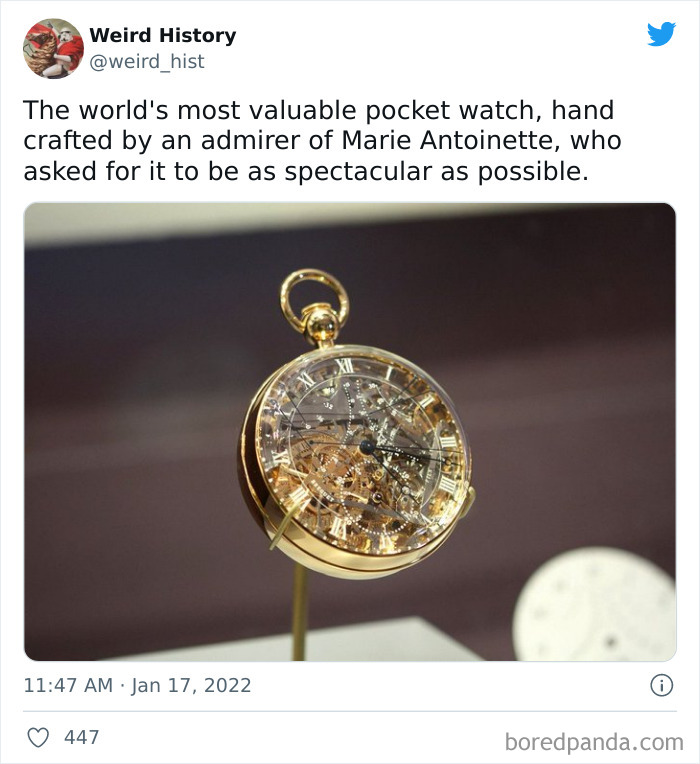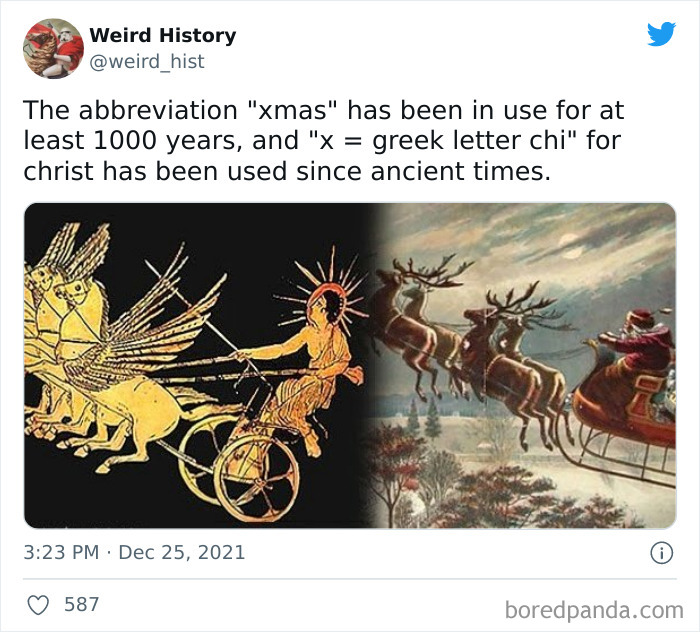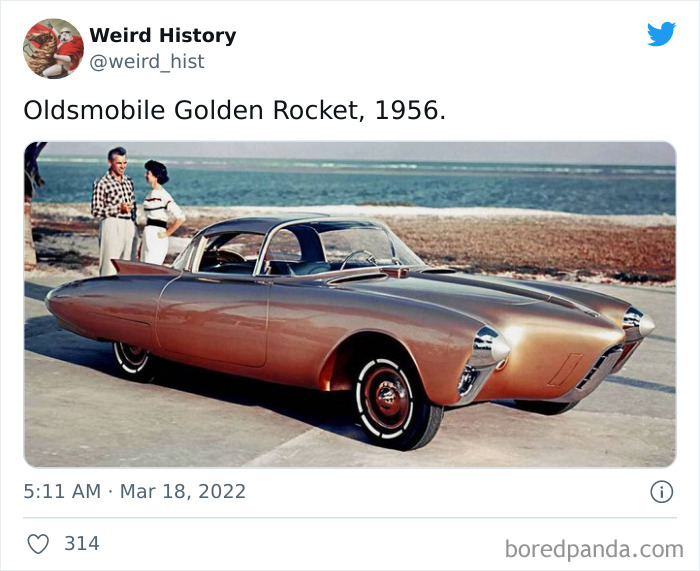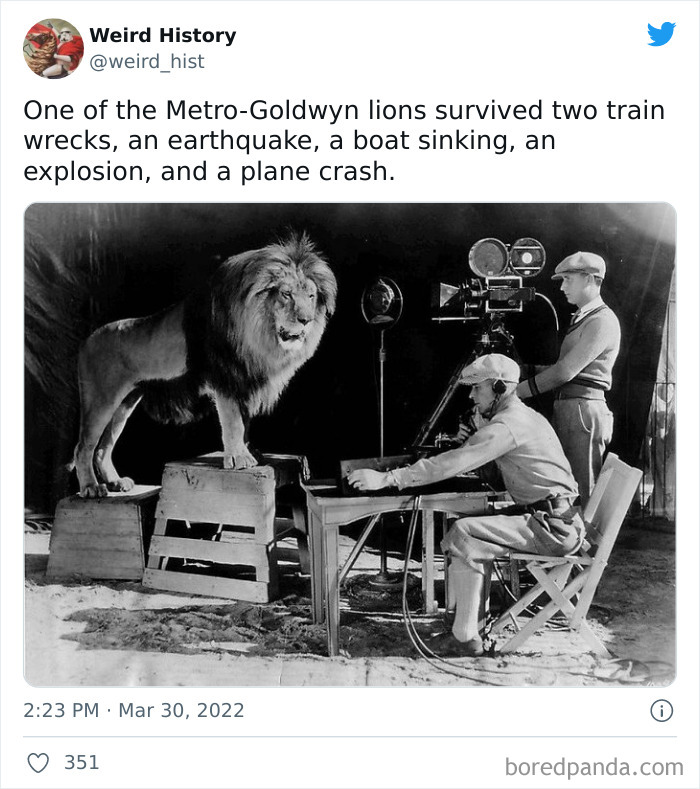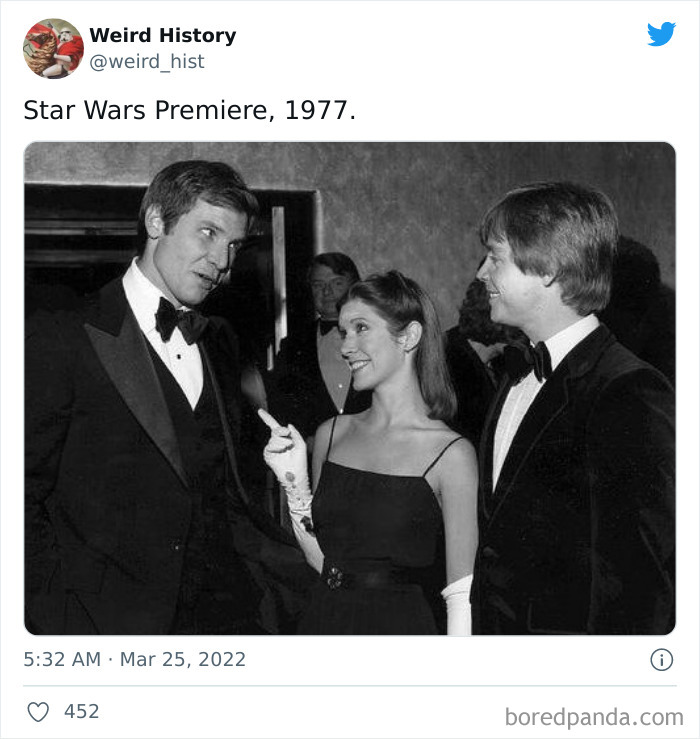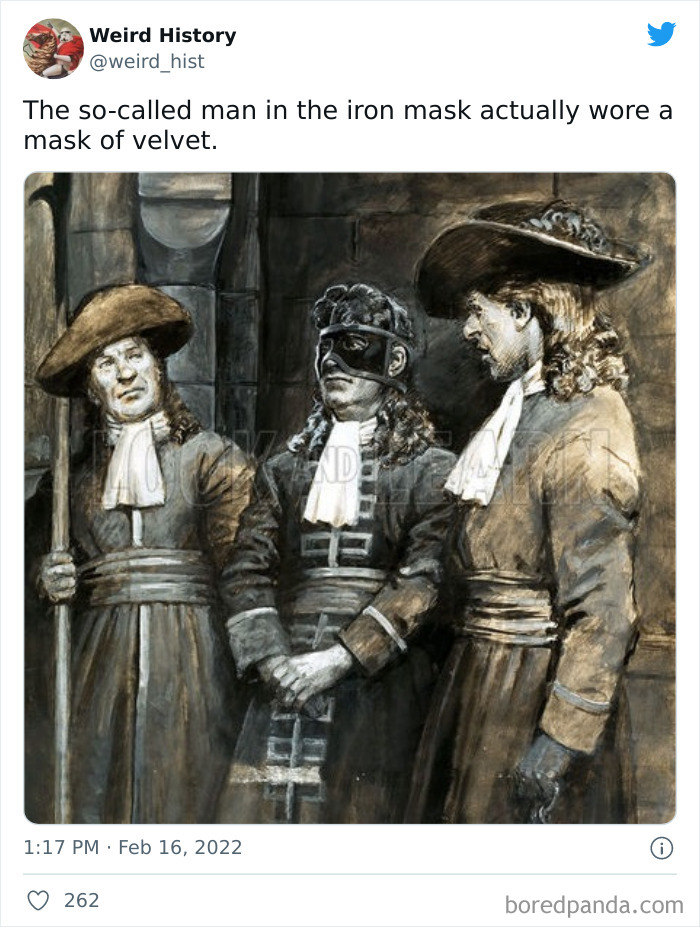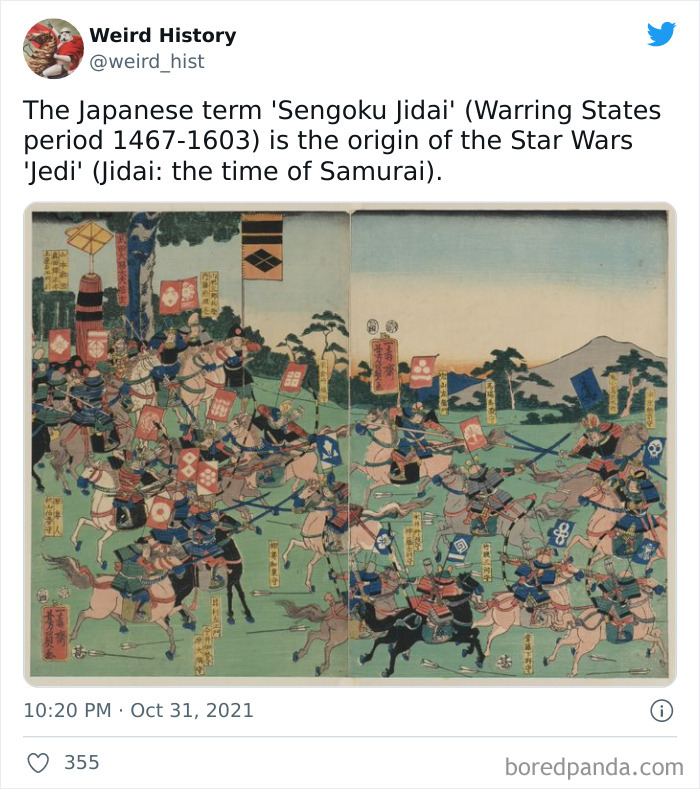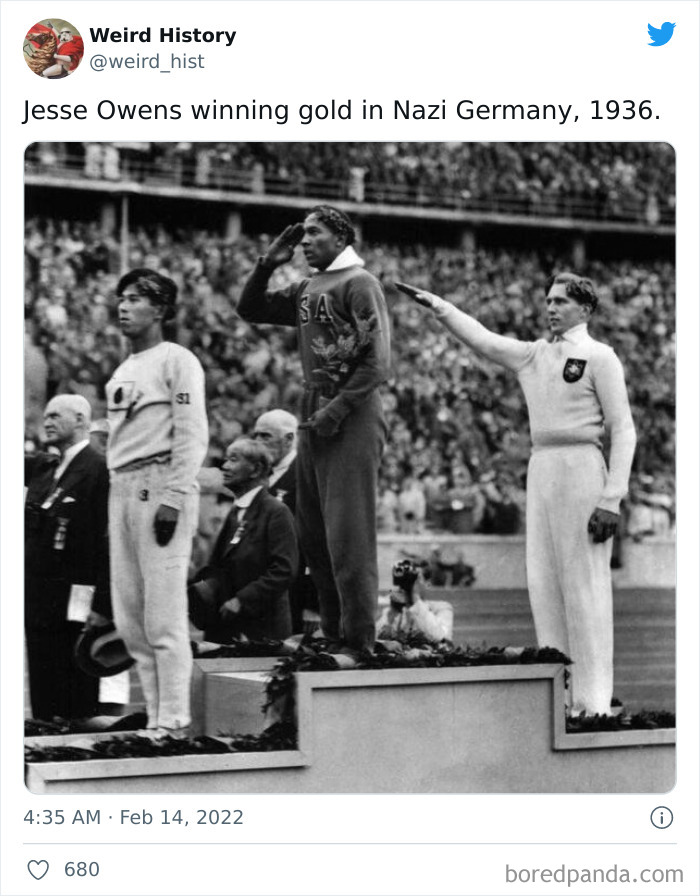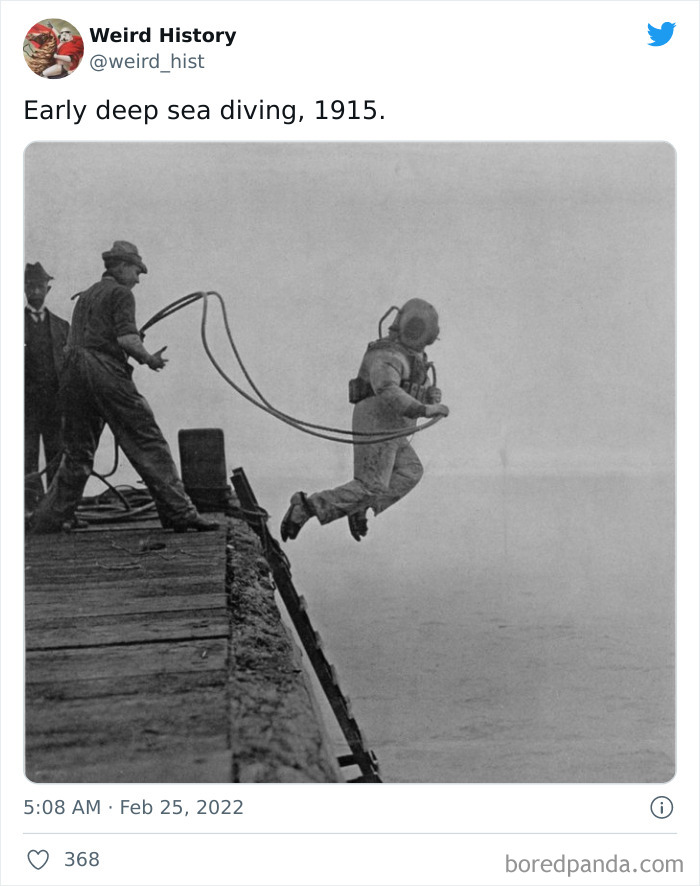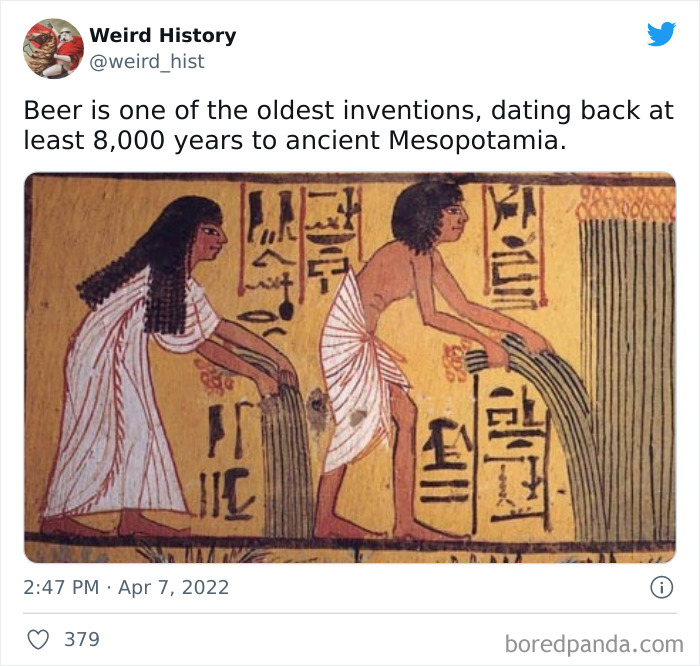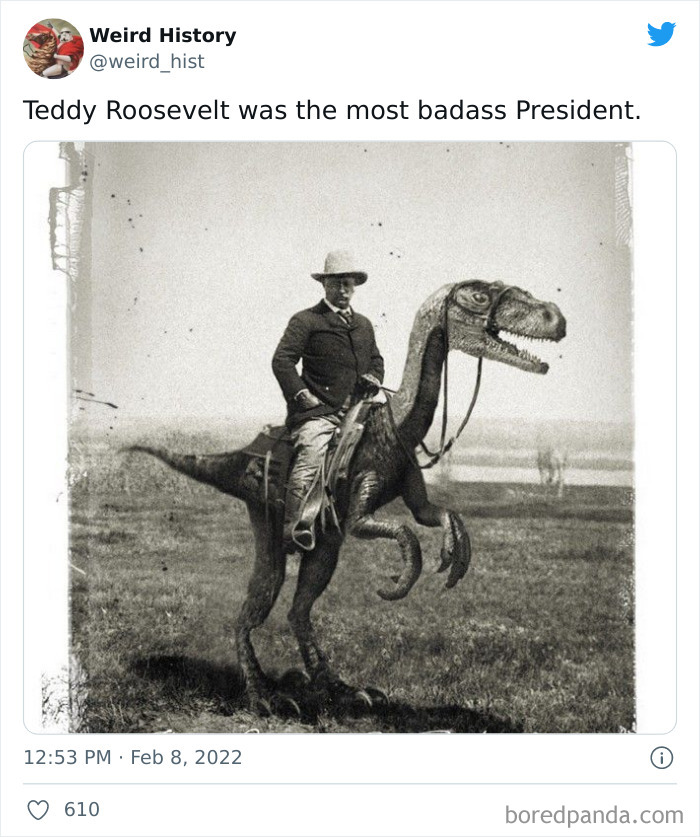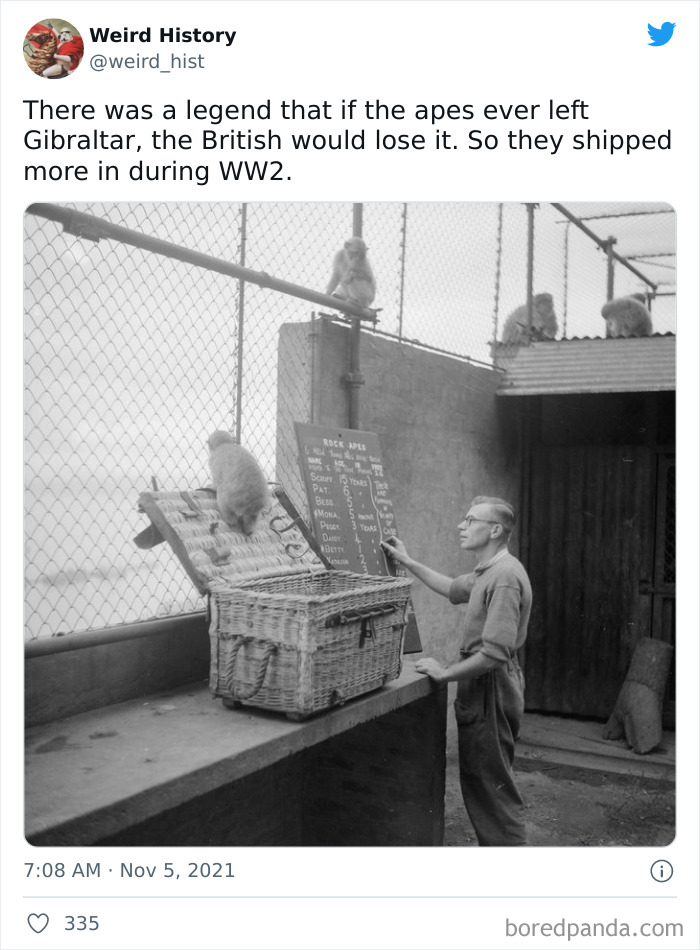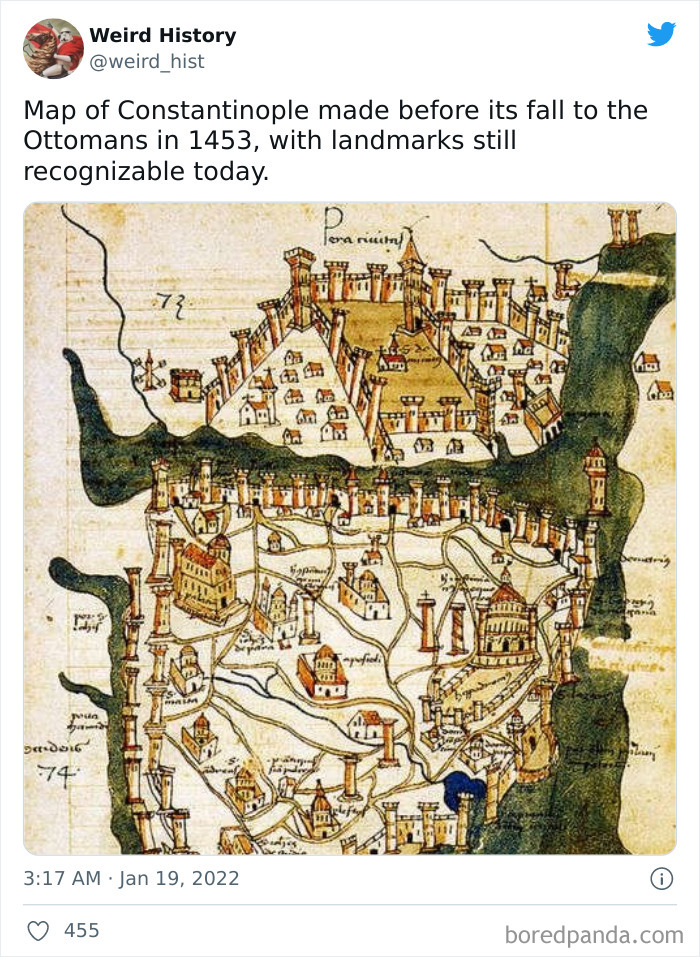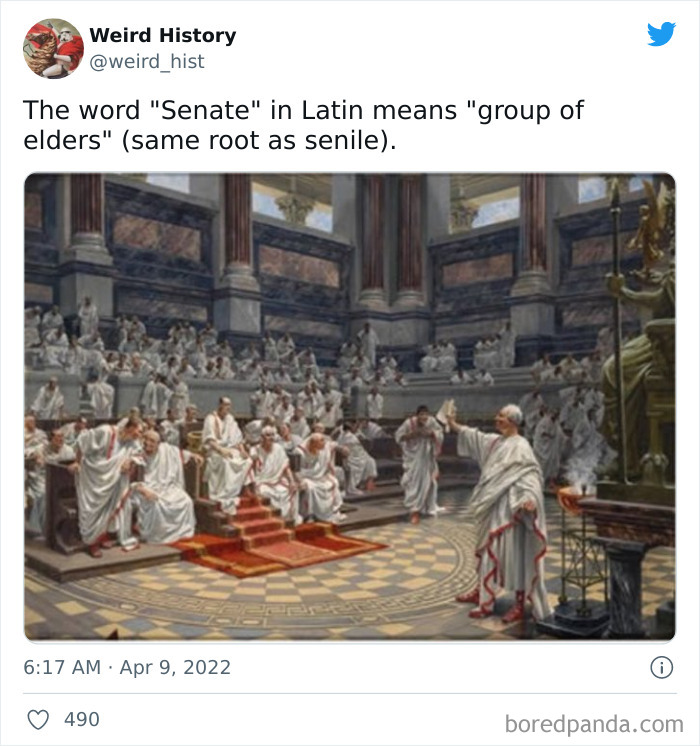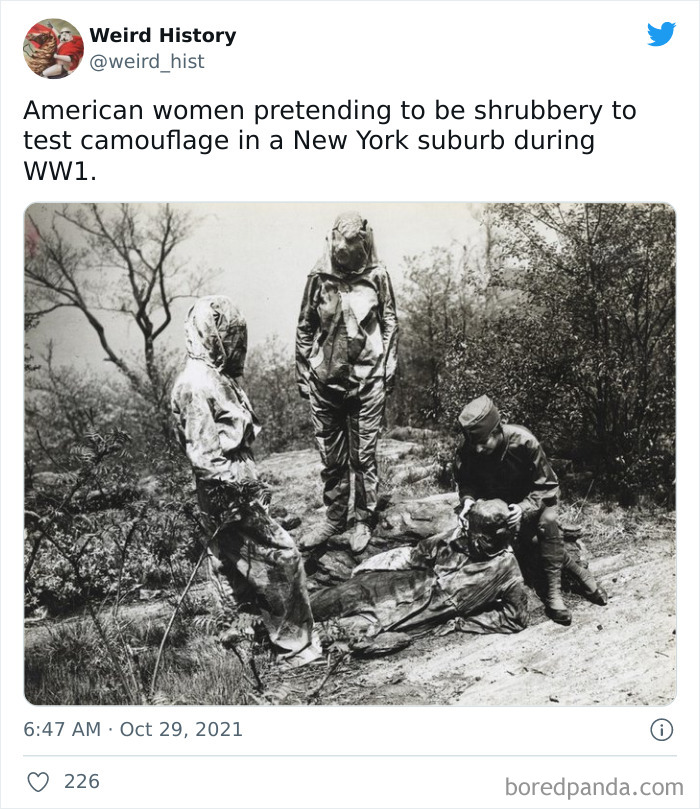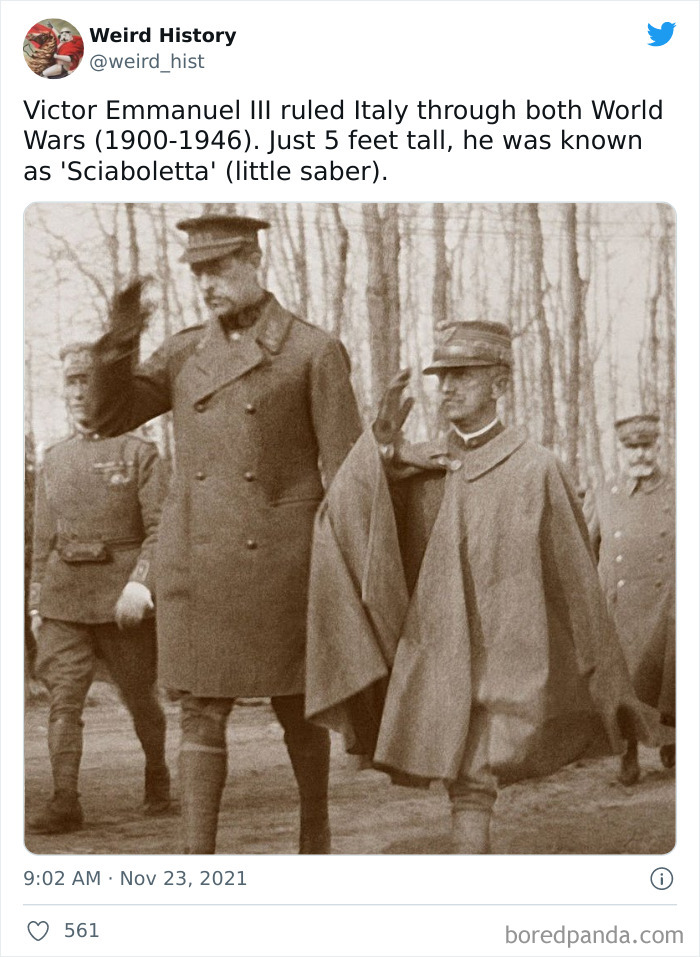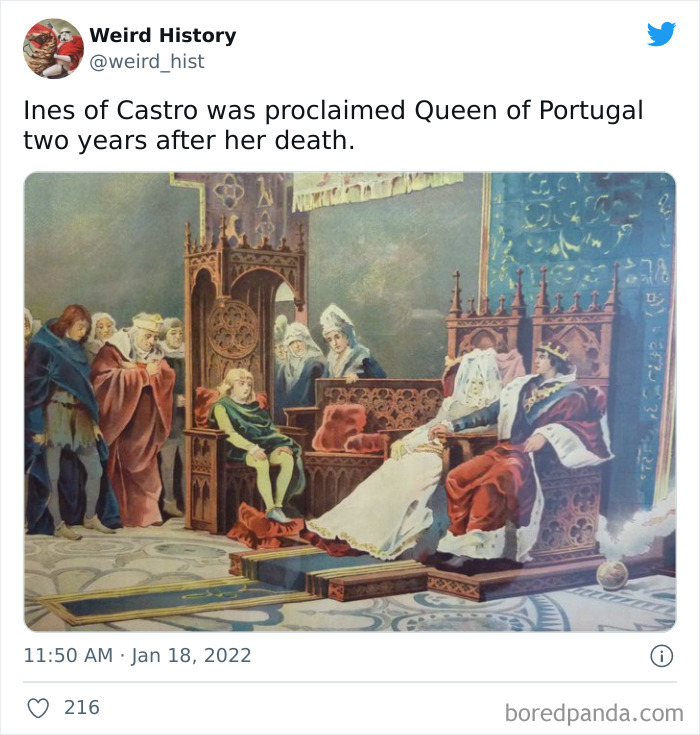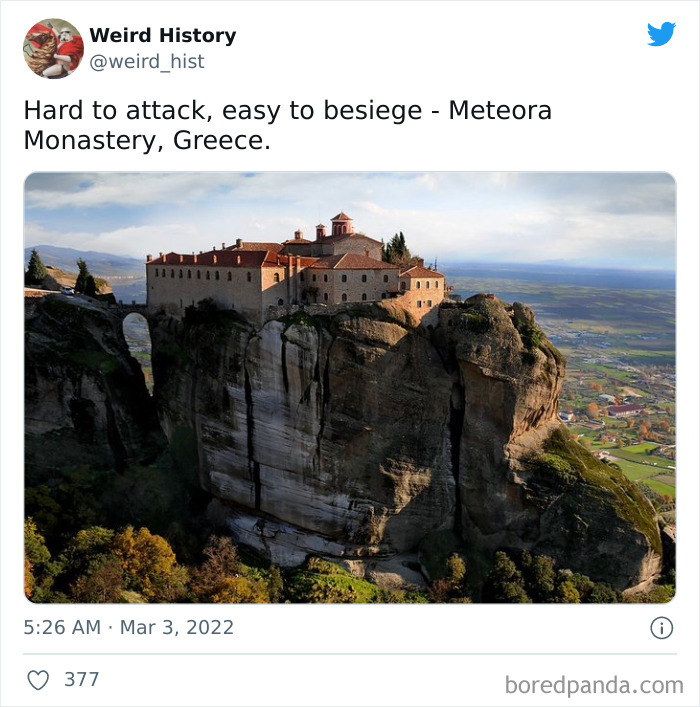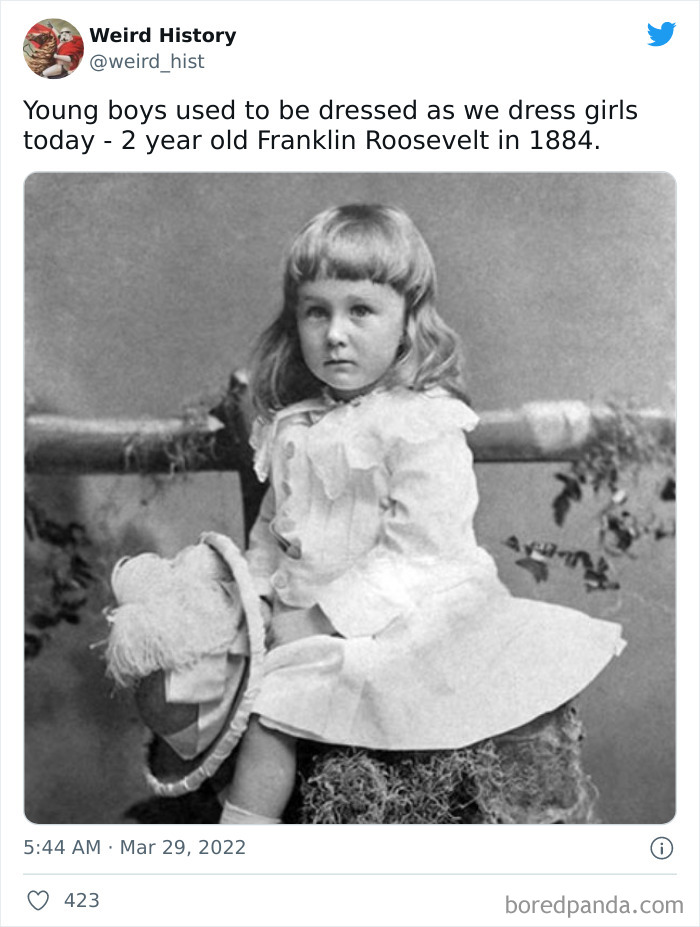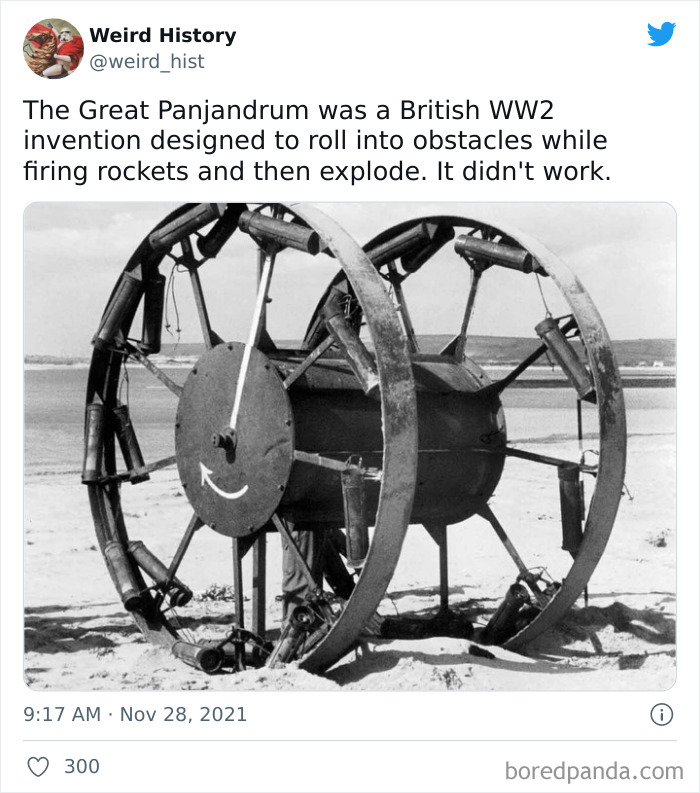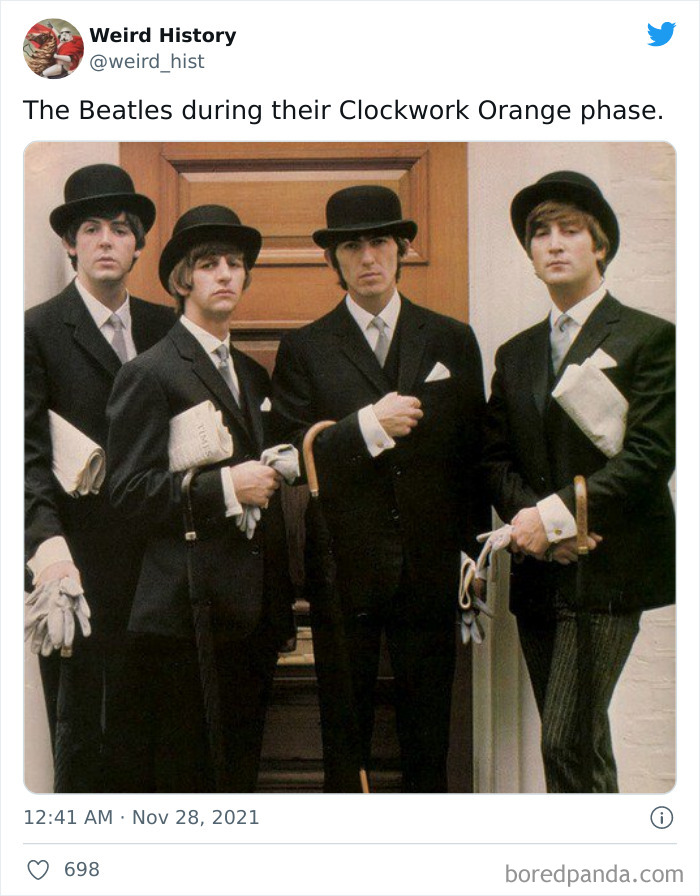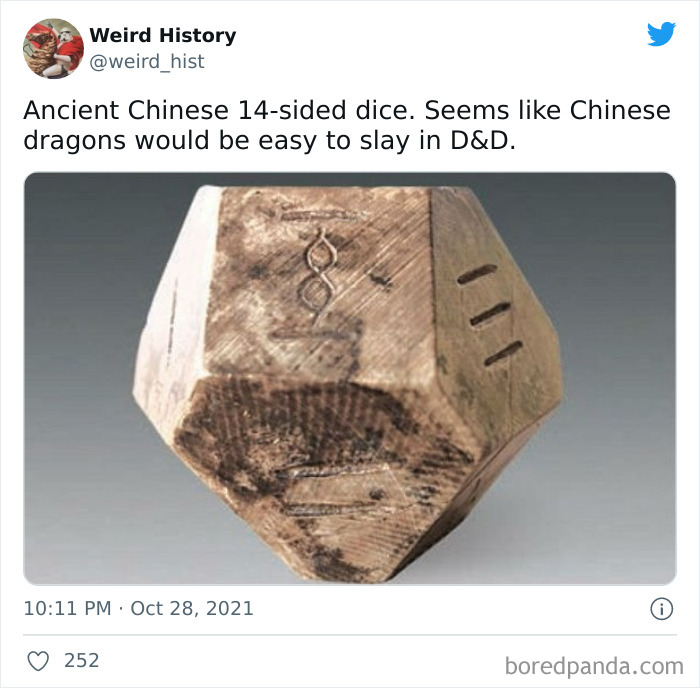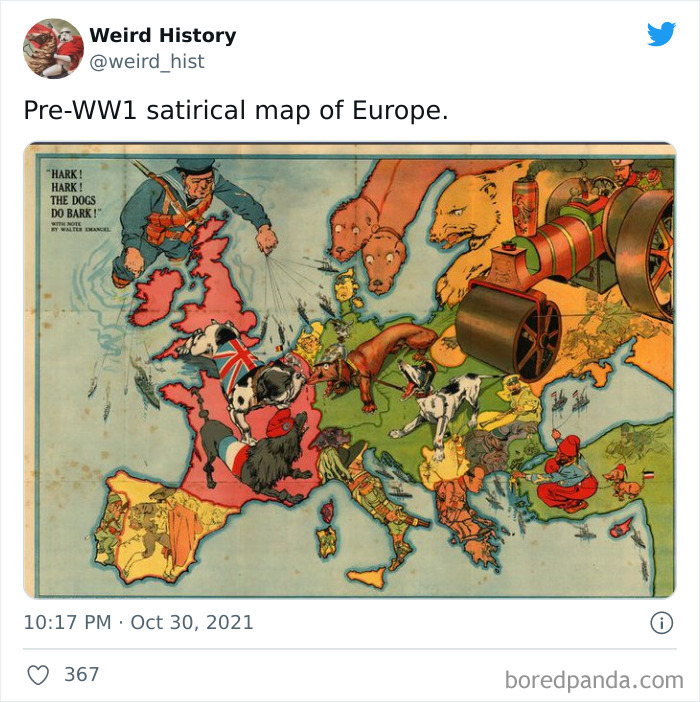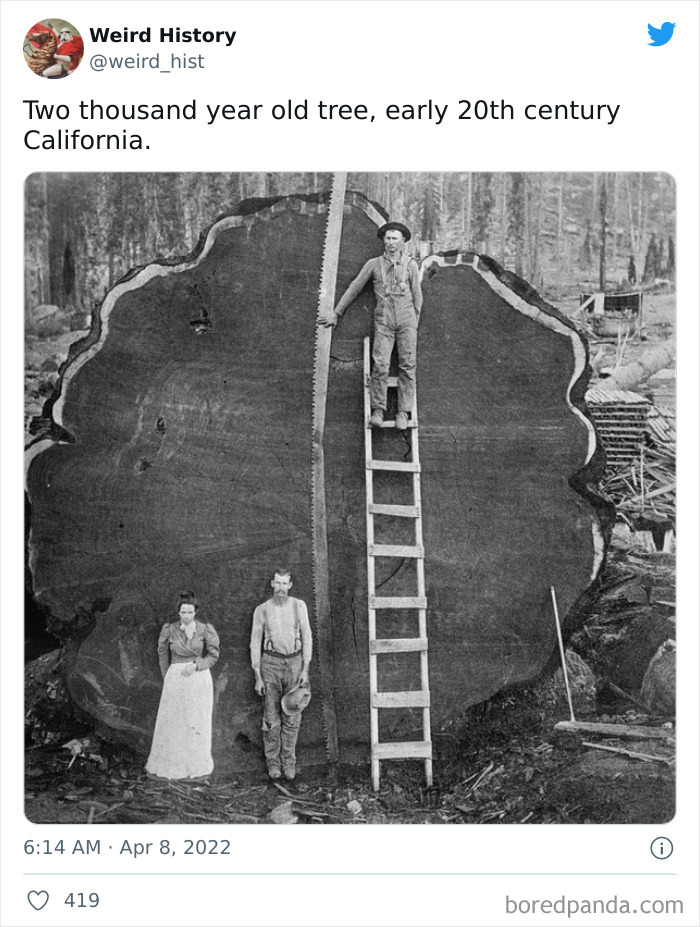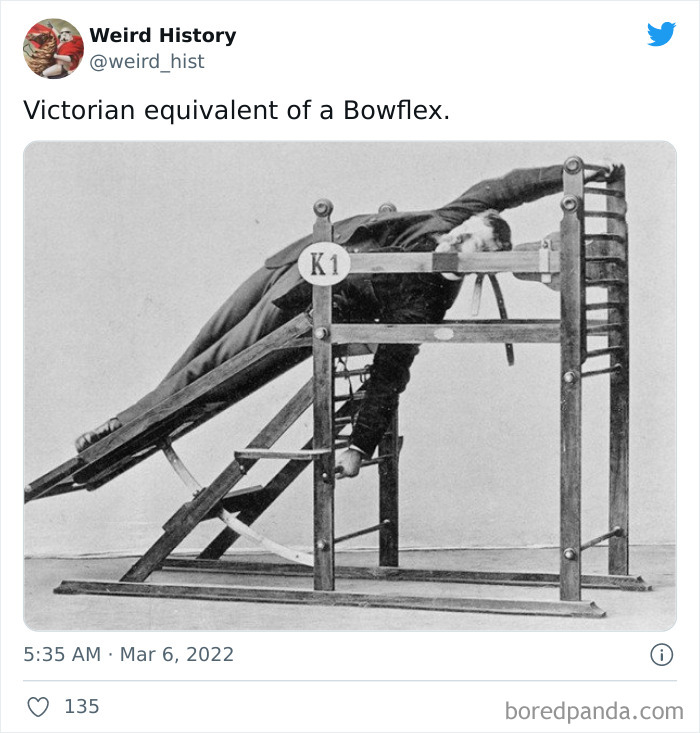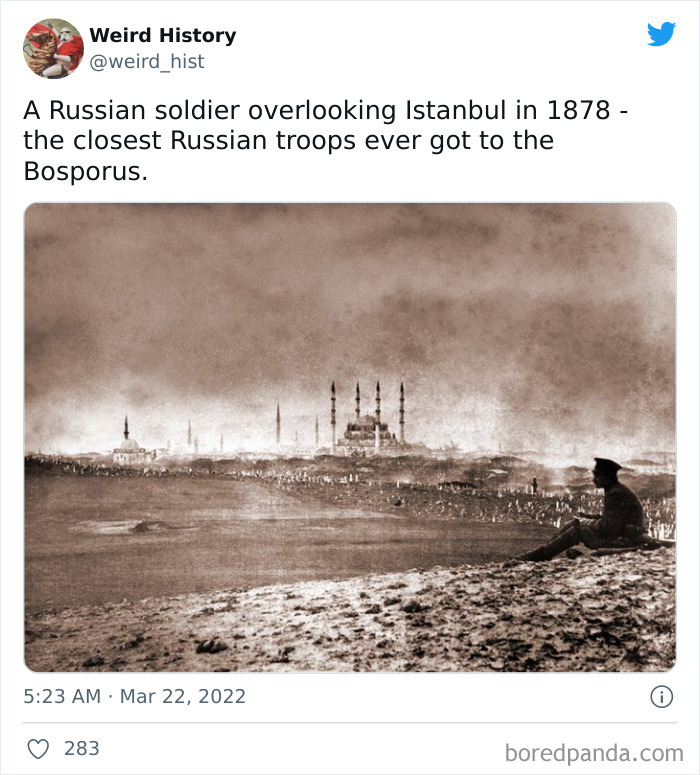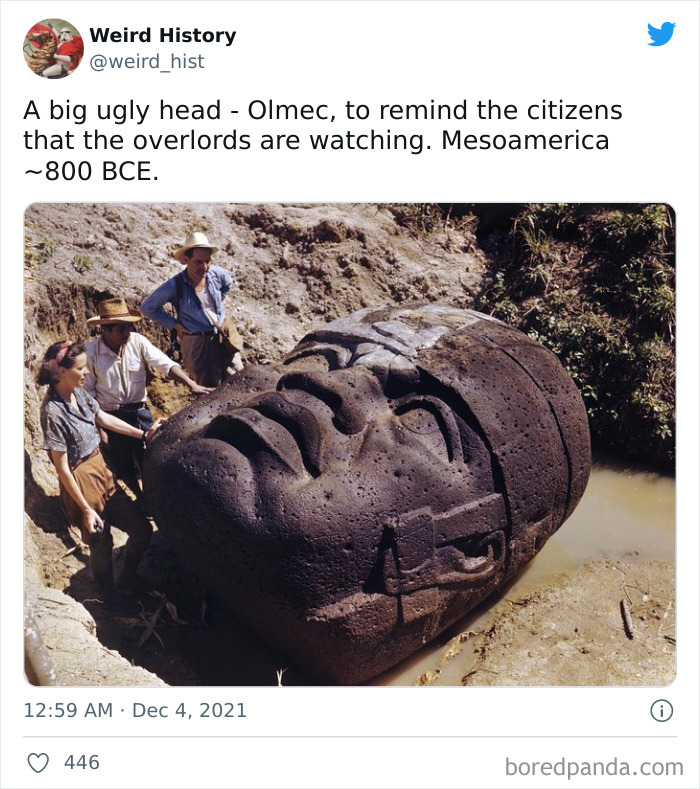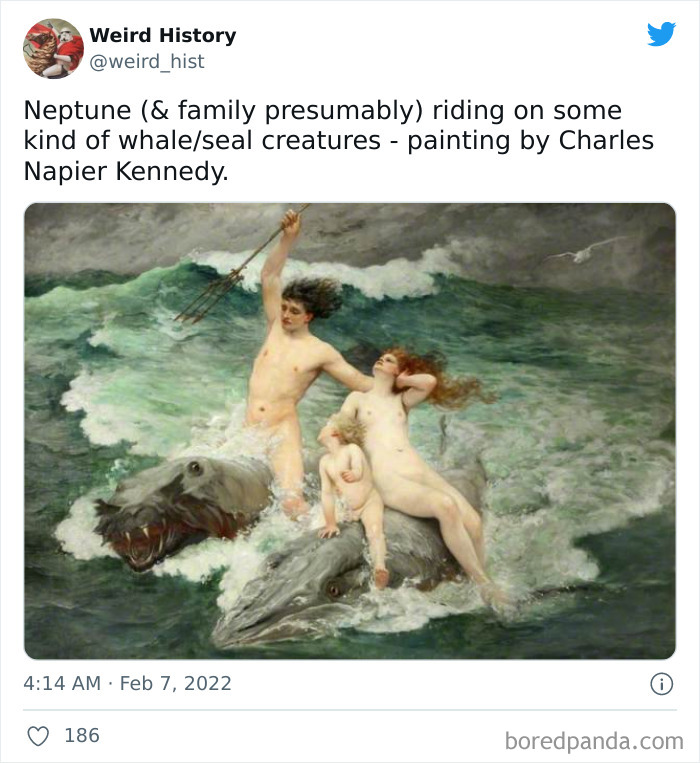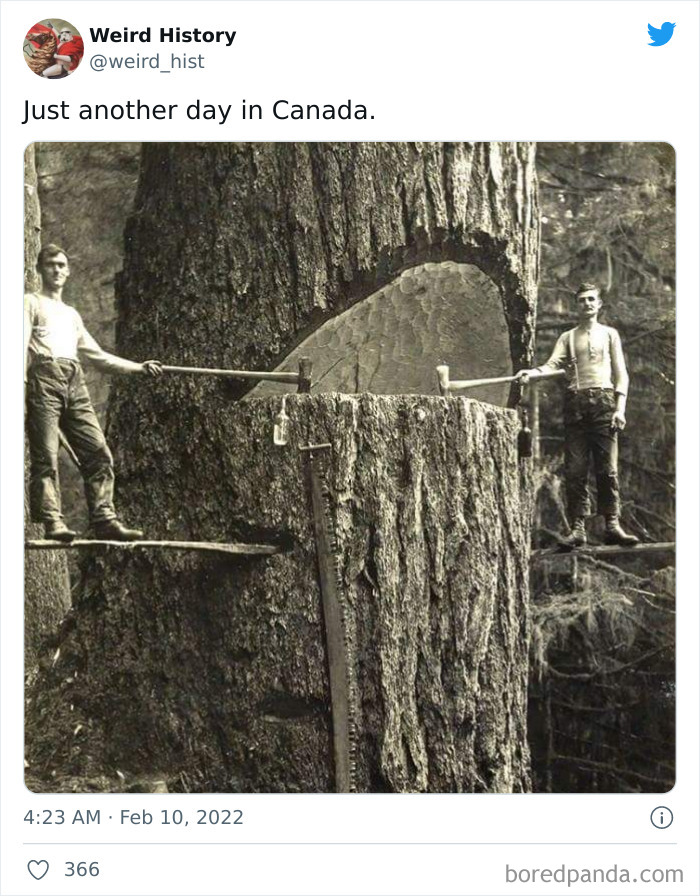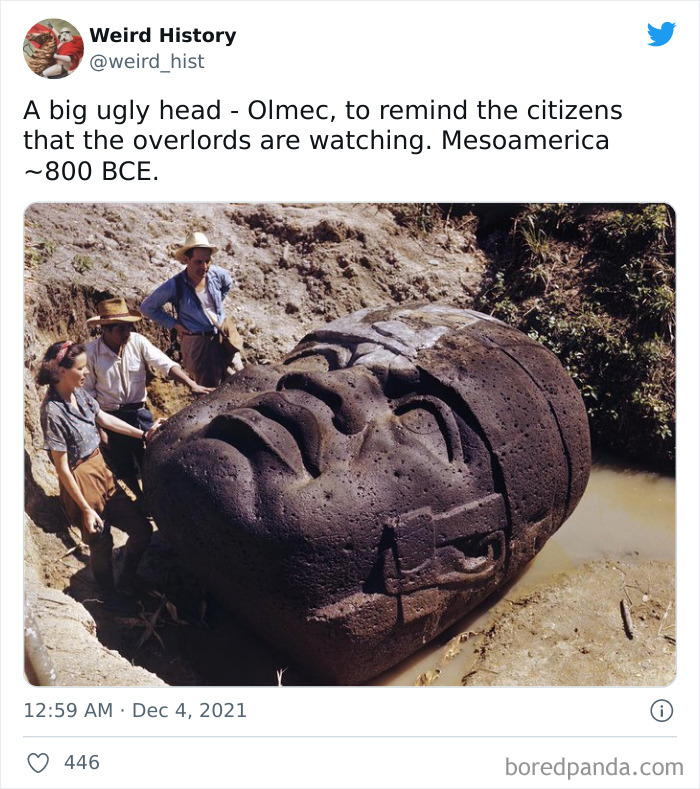
‘Weird History’ Is An Account That Shares Interesting, Odd, And Funny Things That Happened And Here’s 50 Of Their Best Posts (New Pics)
Probably one of the best things about education in the digital age is just how accessible it is. One click away and you get some of the best bits of knowledge you otherwise would have gone all the way to the library for, hoping to find what you were looking for. The problem with that is that you always have to know what you’re interested in in the first place.
Unlike the Weird History Twitter page that offers some of the most entertaining facts from all kinds of areas: it's pure entertainment in its educational form. Created by Andrew Rader more than a decade ago, in September 2011, Weird History has gained a following of 182.3K and counting adoring fans who never miss a new fact, bit of trivia, and piece of history to add to their memory.
Below the newest Weird History batch awaits you, so upvote your favorite posts! And after you’re done, be sure to check out Bored Panda’s previous features from the page here and here.
More info: Twitter (Weird History) | Twitter (Andrew) | Instagram | Facebook | YouTube | Andrew-Rader.com
This post may include affiliate links.
The MIT scientist Andrew, the founder and curator of Weird History, is a real Renaissance man. Originally from Ottawa in Canada, he is a SpaceX Mission Manager, book author, game designer, and podcast host currently living in Los Angeles in California. Since Andrew launched the Weird History page on Twitter more than a decade ago in 2011, he has amassed 182.3K followers and counting! Simultaneously, Andrew’s personal Twitter account which he created in 2013, 2 years after the Weird History page, has an audience of 897.7k followers.
In 2013, he won the Discovery Channel’s competitive television series Canada’s Greatest Know-It-All. He's the author of Beyond the Known, a history of exploration from the beginning of humanity to our spacefaring future, and of three books in the Epic Space Adventure series (Epic Space Adventure, Mars Rover Rescue, Europa Excursion) and the children's book Rocket Science.
I suggest you travel and then get back to the rest of us about how horrible the USA is.
Load More Replies...Whatever humor is still allowed in this day and age of political correctness. Me personally, I spit on it.
Load More Replies...He would though. If you know anything about Franklin you know that he would
Fun fact: In 1781 Benjamin Franklin wrote an essay entitled "Fart Proudly"
Ben Franklin, Philadelphia's Hometown Hero. He was known for his great sense of humor, they say Honest Abe was a funny man too but Benjamin Franklin was equivalent to that of a comedian and I personally admire people like that as I try to be the funny man myself, even though there's times I suck ass at it 😅 I mean, I've been told I can be a stand up comedian, I just don't want to have to stand up all that time!
🎶"The things I write are only light extemporania I won't put politics on paper; it's a mania So I refuse to use the pen in Pennsylvania"🎶 --Franklin, 1776(the musical)
That's not quite true. He felt he wasn't informed enough to write it, so he asked Thomas Jefferson to do it.
That is the MOST impressive fact about a pretty impressive guy! Word Ben,,, WORD!
According to Andrew, we tend to think of exploration as escape, but it’s actually about forging connections. “On a personal level, we travel to connect with our roots, connect with nature, connect with fellow travelers, or connect with new lands and people. At the level of civilizations, connections precipitated the circulation of people, ideas, technologies, and resources,” he wrote in his blog.
Andrew argues that more connections meant more people working collaboratively to solve problems, like the historical version of the internet. “Most technologies are not invented from scratch, but modified from ideas spread by others. Writing has only been invented on our planet very few times—possibly only twice—but spread to evolve into almost four thousand written languages. As Isaac Newton famously expressed, progress begins with ‘standing on the shoulders of giants’, where one discovery forms the foundation upon which the next is based.” Therefore Andrew believes that the more ideas exchanged, the more shoulders there are to stand on, and the more people standing on top of them.
I read some really interesting history facts today if anyone's interested to learn them! One of them was that nipple piercings were popular among all genders in the late 1700s or 1800s (I don't fully remember the fact but I have it saved)
I read some really interesting history facts today if anyone's interested to learn them! One of them was that nipple piercings were popular among all genders in the late 1700s or 1800s (I don't fully remember the fact but I have it saved)

 Dark Mode
Dark Mode  No fees, cancel anytime
No fees, cancel anytime 







